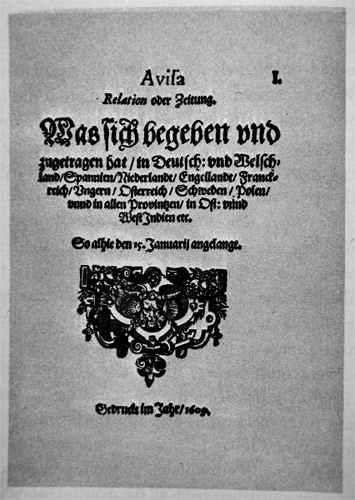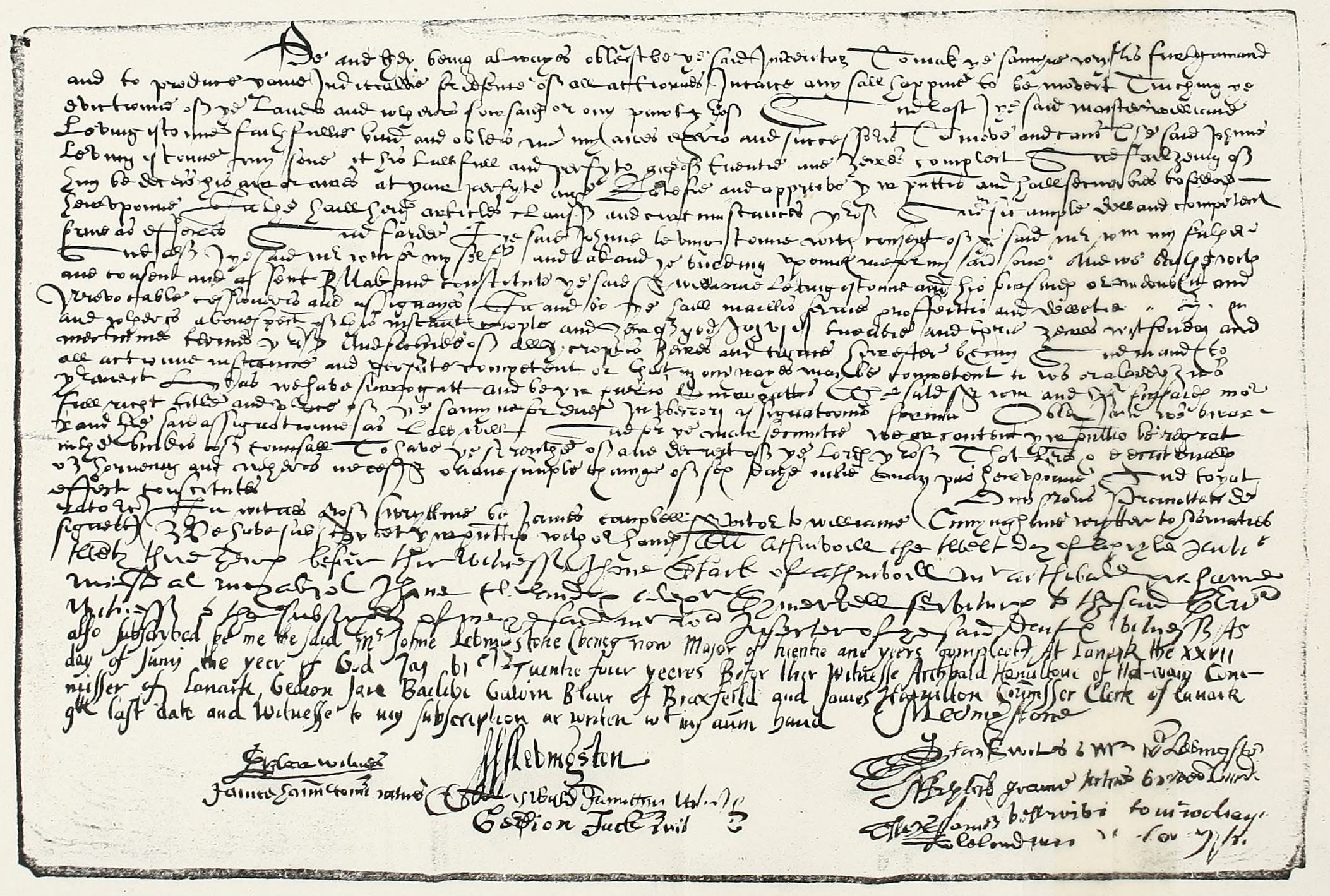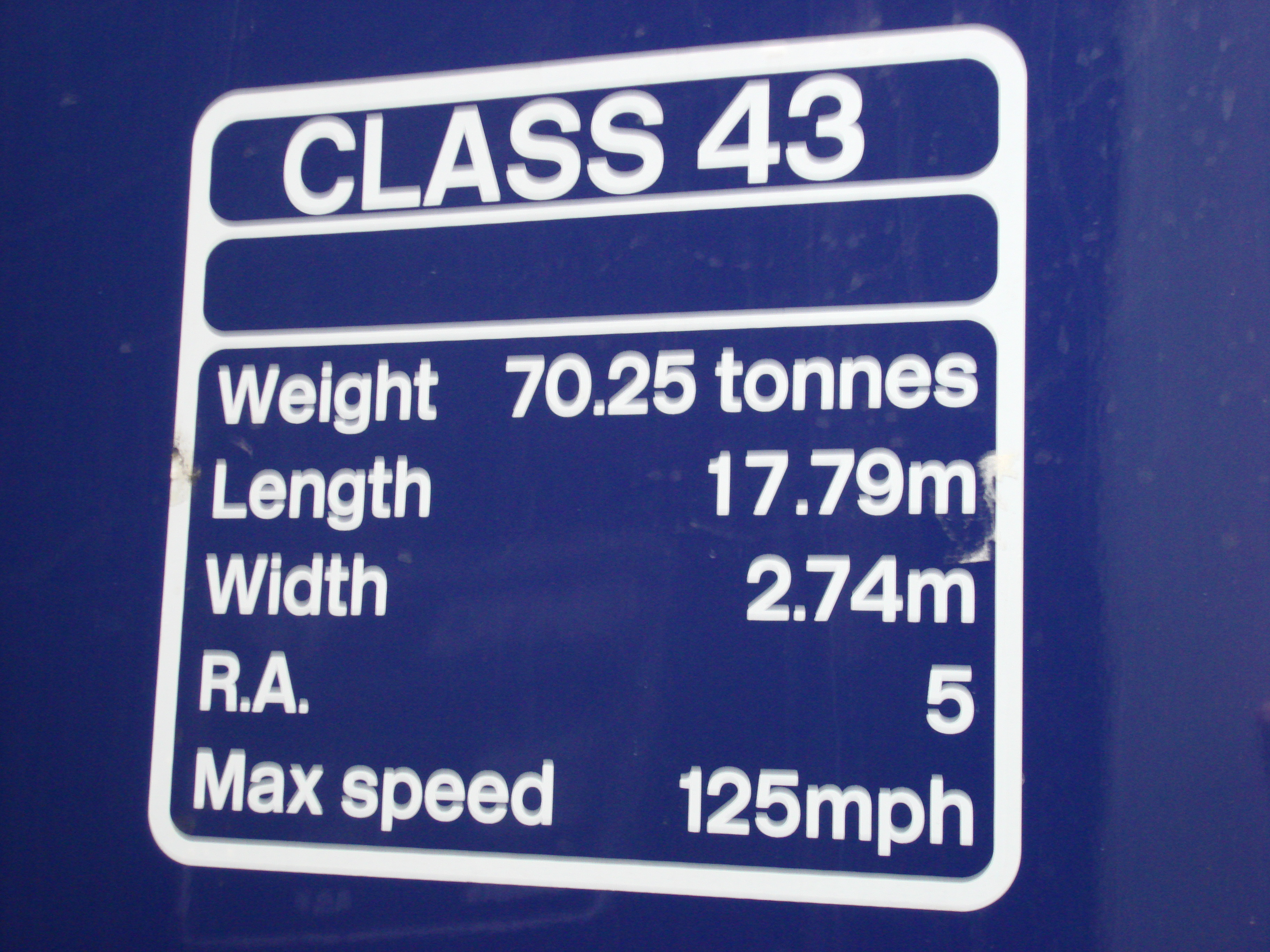|
John M'Clellan
John M'Clellan (also spelled M'Lellan, M'Clelland, Mackleland, Makclellan, and Macleland; 1609–1650) was a seventeenth century teacher and minister. Educated in Scotland he started work as a schoolmaster at Newtownards. He also began to preach there initially with the sanction of the church. He took part in an unsuccessful attempt to sail to America on board the Eagle Wing in 1636. After this he returned to Scotland where he became a minister where he served from 1638 until his death in 1650. Life M'Clellan was born in Kirkcudbright in 1609. He was the son of Michael M'Clellan who was a burgess of Kirkcudbright. John was educated at University of Glasgow, graduating with an M.A. in 1629. After this he was employed as a schoolmaster at Newtownards, County Down. He was licensed to be a preacher in Ireland, but later deposed and excommunicated by the episcopalian authorities. Nevertheless he continued to preach, but being obliged to flee, returned to Scotland in 1638. In Septembe ... [...More Info...] [...Related Items...] OR: [Wikipedia] [Google] [Baidu] |
Church Of Scotland
The Church of Scotland (CoS; ; ) is a Presbyterian denomination of Christianity that holds the status of the national church in Scotland. It is one of the country's largest, having 245,000 members in 2024 and 259,200 members in 2023. While membership in the church has declined significantly in recent decades (in 1982 it had nearly 920,000 members), the government Scottish Household Survey found that 20% of the Scottish population, or over one million people, identified the Church of Scotland as their religious identity in 2019. In the 2022 census, 20.4% of the Scottish population, or 1,108,796 adherents, identified the Church of Scotland as their religious identity. The Church of Scotland's governing system is Presbyterian polity, presbyterian in its approach, therefore, no one individual or group within the church has more or less influence over church matters. There is no one person who acts as the head of faith, as the church believes that role is the "Lord God's". As a pro ... [...More Info...] [...Related Items...] OR: [Wikipedia] [Google] [Baidu] |
James Hamilton (minister, Born 1600)
James Hamilton (1600–1666) was a 17th-century Scottish minister of the Church of Scotland, later active in Ireland until deposed from his living. Life He was born in 1600 the second son of Gawen Hamilton, third son of Hans Hamilton, vicar of Dunlop. He was nephew of Viscount Clandeboye in northern Ireland.''Fasti Ecclesiae Scoticanae''; by Hew Scott After studying at Glasgow University he was appointed by his uncle, James Hamilton, 1st Viscount Claneboye as land agent, overseer and general manager of his estates in Ireland. He attracted the attention of Robert Blair, at that time minister of the church at Bangor, County Down, who persuaded him to enter the ministry. In 1626, despite unorthodox views which resembled Blair's own in regard to episcopacy, he was ordained by Bishop Robert Echlin, and presented by Lord Claneboye to the church at Ballywalter in county Down. He was there for ten years until Thomas Wentworth and John Bramhall set new terms of church commun ... [...More Info...] [...Related Items...] OR: [Wikipedia] [Google] [Baidu] |
People From Kirkcudbright
The term "the people" refers to the public or common mass of people of a polity. As such it is a concept of human rights law, international law as well as constitutional law, particularly used for claims of popular sovereignty. In contrast, a people is any plurality of persons considered as a whole. Used in politics and law, the term "a people" refers to the collective or community of an ethnic group or nation. Concepts Legal Chapter One, Article One of the Charter of the United Nations states that "peoples" have the right to self-determination. Though the mere status as peoples and the right to self-determination, as for example in the case of Indigenous peoples (''peoples'', as in all groups of indigenous people, not merely all indigenous persons as in ''indigenous people''), does not automatically provide for independent sovereignty and therefore secession. Indeed, judge Ivor Jennings identified the inherent problems in the right of "peoples" to self-determination, as i ... [...More Info...] [...Related Items...] OR: [Wikipedia] [Google] [Baidu] |
Alumni Of The University Of Glasgow
Alumni (: alumnus () or alumna ()) are former students or graduates of a school, college, or university. The feminine plural alumnae is sometimes used for groups of women, and alums (: alum) or alumns (: alumn) as gender-neutral alternatives. The word comes from Latin, meaning nurslings, pupils or foster children, derived from "to nourish". The term is not synonymous with "graduates": people can be alumni without graduating, e.g. Burt Reynolds was an alumnus of Florida State University but did not graduate. The term is sometimes used to refer to former employees, former members of an organization, former contributors, or former inmates. Etymology The Latin noun means "foster son" or "pupil". It is derived from the Latin verb "to nourish". Separate, but from the same root, is the adjective "nourishing", found in the phrase '' alma mater'', a title for a person's home university. Usage in Roman law In Latin, is a legal term (Roman law) to describe a child placed in foste ... [...More Info...] [...Related Items...] OR: [Wikipedia] [Google] [Baidu] |
1650 Deaths
Events January–March * January 7 – Louis I, Prince of Anhalt-Köthen, dies after a reign of more than 63 years. The area is now part of the northeastern German state of Saxony-Anhalt. * January 18 – Cardinal Jules Mazarin, the Chief Minister of France and head of its government since 1642, learns of a plot against him and has the Prince de Condé, the Prince de Conti and the Duc de Longueville arrested, prompting a rebellion by parliament against the Crown. * January 28 – The Sultan bin Saif of Oman expels the Portuguese colonial government from Muscat, forcing the surrender of the port of Muttrah and of Fort Capitan, and captures two warships, ending 35 years of Portuguese occupation. * February 1 – The French verse play '' Andromède'', commissioned by Cardinal Mazarin, written by Pierre Corneille and with elaborate sets designed by Giacomo Torelli, premieres before the royal family at the Théâtre Royal de Bourbon. * February 13 &n ... [...More Info...] [...Related Items...] OR: [Wikipedia] [Google] [Baidu] |
1609 Births
Events January–March * January 12 – The Basque witch trials are started in Spain as the court of the Inquisition at Logroño receives a letter from the commissioner of the village of Zugarramurdi, and orders the arrest of four women, including María de Jureteguía and María Chipía de Barrenetxea. * January 15 – One of the world's first newspapers, ''Avisa Relation oder Zeitung'', begins publication in Wolfenbüttel (Holy Roman Empire). * January 31 – The Bank of Amsterdam is established. * February 4 – The last day of Keichō 慶長 13 (according to the Japanese lunar calendar). * March 11 – The Swedish Army, under the command of General Jacob De la Gardie, begins marching east from Vyborg (at this time, part of the Swedish Empire, modern-day Russia) in order to defend the Russian Empire against the Polish-Lithuanian Commonwealth in the course of the Polish–Muscovite War. * March 19 – The Dutch warship ''Mauritius'' ... [...More Info...] [...Related Items...] OR: [Wikipedia] [Google] [Baidu] |
Covenanters
Covenanters were members of a 17th-century Scottish religious and political movement, who supported a Presbyterian Church of Scotland and the primacy of its leaders in religious affairs. It originated in disputes with James VI and his son Charles I over church organisation and doctrine, but expanded into political conflict over the limits of royal authority. In 1638, thousands of Scots signed the National Covenant, pledging to resist changes in religious practice imposed by Charles. This led to the 1639 and 1640 Bishops' Wars, which ended with the Covenanters in control of the Scottish government. In response to the Irish Rebellion of 1641, Covenanter troops were sent to Ireland, and the 1643 Solemn League and Covenant brought them into the First English Civil War on the side of Parliament. As the Wars of the Three Kingdoms progressed, many Covenanters came to view English religious Independents like Oliver Cromwell as a greater threat than the Royalists, particu ... [...More Info...] [...Related Items...] OR: [Wikipedia] [Google] [Baidu] |
General Assembly Of The Church Of Scotland
The General Assembly of the Church of Scotland is the sovereign and highest court of the Church of Scotland, and is thus the Church's governing body.''An Introduction to Practice and Procedure in the Church of Scotland'' by A. Gordon McGillivray, 2nd Edition (2006 updated text) It generally meets each year and is chaired by a Moderator elected at the start of the Assembly. Church courts As a Presbyterian church, the Church of Scotland is governed by courts of elders rather than by bishops. At the bottom of the hierarchy of courts is the Kirk Session, the court of the parish; representatives of Kirk Sessions form the Presbytery, the local area court. Formerly there were also Synods at regional level, with authority over a group of presbyteries, but these have been abolished. At national level, the General Assembly stands at the top of this structure. Meetings General Assembly meetings are usually held in the Assembly Hall on the Mound, Edinburgh. This was originally bui ... [...More Info...] [...Related Items...] OR: [Wikipedia] [Google] [Baidu] |
John Livingstone (minister)
John Livingstone (or Livingston; born 21 June 1603, Kilsyth – 9 August 1672) was a Scottish minister. He was the son of William Livingstone, minister of Kilsyth, and afterwards of Lanark, said to be a descendant of the second son James, of the fourth Lord Livingston. His mother was Agnes, daughter of Alexander Livingston, portioner, Falkirk, brother of the Laird of Belstane. He was educated at Stirling High School and graduated with an M.A. at the University of Glasgow in 1621. Against his father's wish, he preferred to enter the ministry rather than adopt the life of a country gentleman. He studied theology at St Andrews, and was licensed in 1625. For a time he assisted the minister of Torphichen, and was afterwards chaplain to the Countess of Wigtown at Cumbernauld. While engaged in the latter capacity he took part in the memorable revival at the Kirk of Shotts. He declined presentations to several parishes, chiefly on account of his reluctance to obey the Five Article ... [...More Info...] [...Related Items...] OR: [Wikipedia] [Google] [Baidu] |
Infobox Person
An infobox is a digital or physical Table (information), table used to collect and present a subset of information about its subject, such as a document. It is a structured document containing a set of attribute–value pairs, and in Wikipedia represents a summary of information about the subject of an Article (publishing), article. In this way, they are comparable to data table (information), tables in some aspects. When presented within the larger document it summarizes, an infobox is often presented in a sidebar (publishing), sidebar format. An infobox may be implemented in another document by transclusion, transcluding it into that document and specifying some or all of the attribute–value pairs associated with that infobox, known as parameterization. Wikipedia An infobox may be used to summarize the information of an article on Wikipedia. They are used on similar articles to ensure consistency of presentation by using a common format. Originally, infoboxes (and templates ... [...More Info...] [...Related Items...] OR: [Wikipedia] [Google] [Baidu] |
Robert Blair (moderator)
Robert Blair (1593 – 27 August 1666) was a Scotland, Scottish presbyterian Minister of religion, minister who became a Westminster Divine and Moderator of the Church of Scotland, Moderator of the General Assembly of the Church of Scotland in 1646, after failing to emigrate to Boston in 1636. Life He was a native of Irvine, Ayrshire. His father was a merchant-adventurer, John Blair of Windyedge, a younger brother of the family of Blair of that ilk; his mother was Beatrix Muir (of the house of Rowallan), who lived for nearly a century. From the parish school at Irvine Blair proceeded to the University of Glasgow, where he took his degree of M.A. He is stated to have acted as a schoolmaster in Glasgow. In his twenty-second year he was appointed a regent or professor in the university. One of his students was the future author of polemics for the Covenanters, Robert Baillie. In 1616 he was licensed as a preacher of the gospel in connection with the established church (presbyt ... [...More Info...] [...Related Items...] OR: [Wikipedia] [Google] [Baidu] |
County Down
County Down () is one of the six counties of Northern Ireland, one of the nine counties of Ulster and one of the traditional thirty-two counties of Ireland. It covers an area of and has a population of 552,261. It borders County Antrim to the north, the Irish Sea to the east, County Armagh to the west, and County Louth across Carlingford Lough to the southwest. In the east of the county is Strangford Lough and the Ards Peninsula. The largest settlement is Bangor, County Down, Bangor, a city on the northeast coast. Three other large towns and cities are on its border: Newry lies on the western border with County Armagh, while Lisburn and Belfast lie on the northern border with County Antrim. Down contains both the southernmost point of Northern Ireland (Cranfield Point) and the easternmost point of Ireland (Burr Point). It was one of two counties of Northern Ireland to have a Protestant majority at the time of the United Kingdom Census 2001, 2001 census. The other Protestant-m ... [...More Info...] [...Related Items...] OR: [Wikipedia] [Google] [Baidu] |




